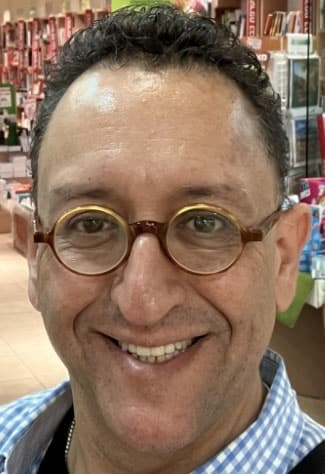As Israelis prepare for this week’s 68th Independence Day celebrations, fans of Israel’s modern Hebrew literature look forward to a milestone celebration later this year: the 50th anniversary of Israeli author S.Y. Agnon receiving the Nobel Prize in literature. Dec. 10, 1966 is a landmark moment in Israeli history, the day when a Hebrew writer took the stage in Stockholm and proudly accepted the first Nobel Prize bestowed upon an an Israeli citizen. Although Agnon was well known to students and lovers of Hebrew literature, many more Israelis were caught up in the euphoria of the Nobel Prize, and were more excited to celebrate the prize and its prestige than the actual content of Agnon’s literature.
Fifty years later, a more mature Israel continues to read and reflect upon Agnon’s literature. At a recent gathering at the Israeli presidential residence kicking off the 50th anniversary celebrations, a group of Israeli writers and scholars contemplated Agnon’s contemporary relevance. The consensus was that Agnon is perhaps more relevant today than he was 50 (or more) years ago, because he conveys the Israeli experience in its full gamut of emotions, challenges and complexities. Agnon’s stories present modern-day Israelis with a literary looking glass through which they can honestly examine their society’s problems.
Agnon’s portrayal of Israeli society is nuanced and complex. Far from the epic and mythological Israel romantically portrayed by diaspora writers Leon Uris (“Exodus”) or Herman Wouk (“The Hope”), Agnon presents a more realistic picture of the society he migrated to in 1908.
Born in the small town of Buczacz, Poland, in 1888, Agnon grew up in a religious milieu deeply steeped in the spiritual images of the Israel portrayed in the Bible and prayer book. While living in a community that idealized the land of Israel as a “Garden of Eden on earth,” Agnon was raised in a period in the throes of a transition from a religious diaspora existence to modern secular Zionism’s plans for a national Jewish homeland.
The ongoing tension between the idealized Holy Land versus the realities of a politically independent homeland continuously shaped Agnon’s depiction of Israeli society. The apex of this polarity comes in the experiences of Isaac Kumer, the main character in Agnon’s masterpiece, “Only Yesterday” (“Tmol Shilshom”). Published in 1945, “Only Yesterday” portrays life as it really was during the formative pre-state period known as the “Second Aliyah.” No singular work by Agnon holds more relevance to the complexities of contemporary Israel than “Only Yesterday.”
Isaac Kumer’s journey begins as a dreamer: “Like all of our brethren of the Second Aliyah, the bearers of our Salvation, Isaac Kumer left his country and his homeland and his city and ascended to the Land of Israel to build it from its destruction and to be rebuilt by it. A blessed dwelling place was his image of the whole Land of Israel and its inhabitants.” When asked if he has family in Israel, Isaac responds, “What do I need relatives for, all the Children of Israel are comrades, especially in the Land of Israel.”
Isaac’s experiences in Israel are a far cry from his imagination. Both the idealized “New Jaffa” and the mythical “Old Jerusalem” shatter Isaac’s hopes of finding a Jewish utopia.
Raised as a religious Jew, Isaac abandons his observance and settles in the secular neighborhood of Jaffa, ultimately being disappointed by the lack of idealism in that community. He moves to Jerusalem and returns to a somewhat religious lifestyle, hoping to find a community bound by a common spiritual purpose. Instead he discovers how easily his new religious brethren can cheat him and how lonely life can be in Jerusalem. Isaac finds a Jewish society polarized along religious and ideological lines, and many within that society who have abused Zionism for personal material gain. He dreams of working the land on an agricultural settlement, only to discover that Jewish landowners prefer cheap Arab labor to Jewish workers.
Agnon detected problems that have persistently plagued Israeli society from its pre-state years until today. Extreme factionalism continues to divide Israeli society. Financial corruption and abuse abound among Israel’s public officials. Hiring cheap labor is no longer “Arab versus Jew,” but is now “foreign worker versus Arab or Jew.”
In 68 years, Israel has achieved greatness in medicine, science, economics and global diplomacy, all reflected in 11 more Nobel Prizes. But it is the voice of Israel’s inaugural Nobel laureate — the writer — that Israel needs to pay close attention to today.
In her memoir, Agnon’s late daughter Emunah Yaron wrote that her father was “an author of truth, who writes things as he sees them, without any make-up or rouge camouflaging the face of things, without any décor trying to deter the eye from the core issues.”
Fifty years after his greatest moment, there is no better way for Israeli society to pay tribute to Agnon than to follow his lead: To engage in a truthful exploration of the core problematic issues within Israeli society that Agnon wrote about. Doing so would not only bring great honor to the writer, but might help create an Israel much closer to the dreams of his protagonist Isaac Kumer.
Rabbi Daniel Bouskila is the international director of the Sephardic Educational Center.























 More news and opinions than at a Shabbat dinner, right in your inbox.
More news and opinions than at a Shabbat dinner, right in your inbox.